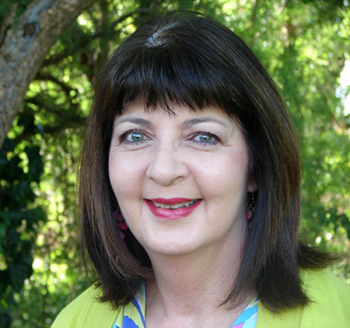Latest News Archive
Please select Category, Year, and then Month to display items
12 January 2024
|
Story Nonsindiswe Qwabe
|
Photo Sonia Small
 Since joining the UFS in 2008, Dr Grey Magaiza has worked extensively on approaches that can foster the socio-economic transformation of societies.
Since joining the UFS in 2008, Dr Grey Magaiza has worked extensively on approaches that can foster the socio-economic transformation of societies.
“The future should be one where communities can decide on their development agenda and futures. That’s the most important for me.” Dr Grey Magaiza, Deputy Director of the Centre for Gender and Africa Studies (CGAS) and Head of the Community Development programme on the Qwaqwa Campus, is passionate about capacitating communities to be agents of change and advancement. His vision for the future emphasises the empowerment of communities to take charge of their development by actively participating in decision making and the implementation of development projects that can improve their lives.
Since joining the UFS in 2008, Dr Magaiza has worked extensively on approaches that can foster the socio-economic transformation of societies. Over the years, he has crafted his research speciality into one that he is most proud of – being an interdisciplinary scientist immersed in the development of communities.
“I’m in a fortunate position of researching what I like. I say ‘fortunate’, because I’ve taken the time to understand what I’m passionate about, which is the overall field of rural livelihoods and livelihood futures – in short, community development. My research starts from an engaged university, understanding the elements that a university must use to enhance transformation and relevance to its immediate community in terms of development.”
One of the ways he has done this is by looking at social entrepreneurship as a development approach for young people in a rural setting. Through workshops with non-profit and civic organisations in Qwaqwa, Dr Magaiza has been helping these organisations to map out their needs and actively meet them through the involvement and support of external role players.
“We understand that communities are part of the national development agenda, but even that national agenda respects community knowledge and intentions and allows communities to shape their identity. A critical enabler of this is community organising. You bring back the capacity in communities to have dialogues on issues affecting them as spaces for engagement, knowledge exchange, and for people to just talk about their way forward.”
By enabling communities to define their development agenda, they can address their specific needs, challenges, and aspirations, he said. “When I look at livelihood futures, it’s quite an exciting aspect of my work – it’s like looking into a fortune tellers’ globe, because you’re not deciding for communities what they should do, but the communities themselves take those decisions.”
Prof Heidi Hudson appointed to international Committee on the Status of Women
2015-11-24
 Prof Heidi Hudson is looking forward to advancing women scholars globally
Photo: Supplied
|
Prof Heidi Hudson, director of the Centre for Africa Studies at the University of the Free State, was recently appointed by the President of the International Studies Association (ISA) to serve on the Committee on the Status of Women from March 2016 to April 2018.
Representing over 100 countries, ISA has more than 6 500 members in North America and internationally, and is the most respected and widely-known scholarly association in the field of International Studies.
She anticipates that her role on the committee will complement her research interests in feminist security theory and practice in Africa. “I am looking forward to playing a part in the advancement of southern scholars, and the promotion of their voice in global academe.”
Prior to Professor Hudson’s appointment, she served as a member of the executive of the Feminist Theory and Gender Studies (FTGS) Section of ISA.
Representing women of the world in academia
The Committee on the Status of Women has the task of reviewing the status of women in the profession, and making recommendations to the president and the Governing Council of ISA on ways of tracking and increasing the status and visibility of women in the profession.
“Some of the goals of the committee for the 2014 to 2016 period include reaching out to women scholars in the global south; creating an ISA networking website for women scholars; and surveying perceptions of the international relations climate and its needs,” said Prof Hudson. It is also responsible for “tracking gender balance within ISA and its journals, and supporting ISA regions in fulfilling the mission of the Committee on the Status of Women,” she added.
Connecting scholars globally since 1959
The ISA has been the premier organisation for connecting scholars and practitioners in fields of international studies, and promoting research and education. ISA cooperates with 57 international studies organisations in more than 30 countries, is a member of the International Social Science Council, and enjoys non-governmental consultative status at the United Nations.
Prof Hudson’s research interests concentrate on discursive and material gender deficits of liberal peacebuilding in the post colony, amongst other subjects. She is also co-editor of International Feminist Journal of Politics.